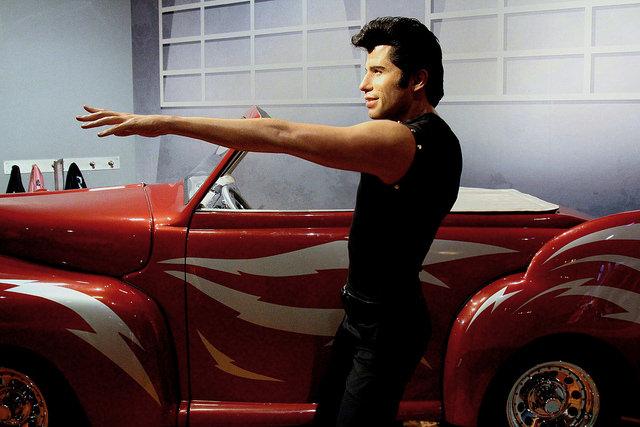Hey, it’s been a while since I’ve invited the hatred of rabid musical theatre fans. Let’s fix that.
Originally produced in 1971, “Grease” was a raunchy musical about working-class teenagers in 1950s Chicago. Though its edge diluted as it moved to Broadway and the West End, it remained a pointed, tongue-in-cheek commentary on love, sex and social life in high school. Then the movie came along.
Released in 1978, the “Grease” feature film was an instant hit, blowing up at the box office and producing the second-most popular album that year. So, where do I get off putting it in the upper echelons of filmic atrocities? Oh, where to begin.
The casting is a good start. Though these characters are allegedly in high school, the youngest principal actor was fresh-faced 25-year-old John Travolta. Stockard Channing, while an excellent actress, was 34 when playing a high school student, a fact that takes the fourth wall and smashes it with a mallet.
Speaking of casting, it’s pretty shocking how bad some of the singing is. While Travolta has done some good work as an actor, and even has some solid moments here, he can not sing. When he’s forced to carry a song alone, it’s like listening to someone stepping on a cat. Most of the cast is at least fine, but Travolta alone lowers the bar down to hell’s wine cellar.
But let’s stop dancing around it and get to the main issue: the plot. “Grease” follows the whirlwind romance between bad boy Danny and good girl Sandy, a tale more or less as old as time. But the whole film is basically these two hormonal idiots worrying about what their friends think of them and fucking up their relationship because of it.
Now that you’ve had a moment to rage at my somewhat reductive summary, allow me to explain.
Early in the film, Danny and Sandy’s respective friend groups arrange a meet-up between the two lovebirds after realizing they go to the same school. But because Danny is worried his meathead buddies will think less of him if he dares to treat a woman with respect, he behaves like a goon with her and she storms off.
Things like this are why it’s hard to make romance alone work as a central focus of a story. Romance stories are as old as the written word, and there usually has to be something else involved to keep the audience interested.
Look at something like “When Harry Met Sally,” the epitome of the romantic comedy in the ’80s and ’90s. While it centers around a relationship like “Grease,” it succeeds where “Grease” fails because there are other things at stake besides “will these people get together?”
There’s friendship, connection, labels, gender standards and a lot more following these people around. “Grease” raises these issues and ignores them. Superior movies embrace them.
But we haven’t even hit the locus of all evil in “Grease” — the ending. Oh, the ending. After an hour and a half of Sandy refusing to put up with Danny’s toxic masculinity, she succumbs and changes everything about herself to get a boy.
While “You’re the One That I Want” is almost painfully catchy, it is infuriating. To kids watching this movie, it says “it’s okay not to be yourself! Change every last bit of your personality and sacrifice your self-worth to get this boy who wouldn’t know a good thing from a punch to the face. It’ll work out great!”
All of this is not to say there is nothing worthwhile in “Grease,” because there obviously is. There are some excellent songs, Olivia Newton-John and Stockard Channing turn in solid performances and there is some decent comedy. But a tamed-down, neutered version of what was and is a solid stage show should not enjoy the pedestal it sits on today.


